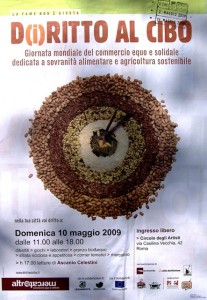I think it’s pretty impressive that the Parliamentary Commission for Agriculture of Hungary’s Parliament is organizing a Parliamentary Open Day entitled “Landscape Management, Local Varieties and Genetic Conservation” on the occasion of the International Day of Biological Diversity. I wonder how many other legislatures around the world are doing something similar. Few, I’ll wager. Thanks to Györgyi Bela for the tip.
Nibbles: Adam Forbes, Squash, Native Americans, Gardens, Buffalo, Pastoralism, Primula, IPR
- Global seed searcher Adam Forbes check in.
- Filipinos greet new squashes.
- Smithsonian special feature on the American Indian. Not much agrobiodiversity, but still.
- Reviews of a couple of interesting gardening books.
- Asian Buffalo Congress 2009.
- Policies that work for pastoral environments.
- “Farmers are being encouraged to graze fewer, rarer animals, and that means the fields can sustain traditional wild flowers. It is a sweet-smelling plant and cattle and sheep love to eat it.” It is the cowslip.
- Case studies on intellectual property in agriculture and forestry.
The Welsh pony story gets a happy ending, maybe
I mentioned earlier that DAD-Net is holding an e-consultation on threats to livestock diversity. There was a bit of discussion on the nature of the threats last week. One of the more interesting contributions came from Dafydd Pilling of the animal genetic resources group at FAO. He offered “an example in which the threat does not correspond exactly to any of the categories listed in the background document.”
The threat in question is the financial burden imposed on the owners of mountain ponies by the EU “horse passport†scheme. The story can be traced by visiting each of the following web pages in turn:
Passport threat to wild ponies
Time running out for wild ponies
Ponies saved from passport threat
The problem goes back to 2004, and we noted it two years ago, but not the dénouement.
Three years ago the European Union passed a law that all such animals had to have a passport and be tagged. This costs £50 per animal, and at that time the ponies were only worth around £15 each so it just wasn’t going to be financially viable for us to keep protecting them.
Then seven local farmers got together, managed to secure Objective One funding and set up the Carneddau Ponies Association to fund and carry out this work.
…
We also want them classed as a rare breed, which would allow us to sell a group on one passport instead of individually.
Looks like livestock diversity is no less at risk from some EU regulation than the crop kind. Although Dr Pilling does add that “EU rules on ear tagging of cattle had been amended” when they were found to pose “a threat to extensive livestock management practices” in Europe. I’ll try to find out more about that one.
Happy World Fair Trade Day!
Today, May 9th is World Fair Trade Day, apparently. I had no idea until I saw this poster a few days ago. And even then there was some confusion as for some reason the date on it is the 10th.

The theme is food sovereignty and sustainable agriculture. There’s a great-looking programme being organized here in Rome. Anyway, as an old germplasm collector, I can really relate to all those seeds on the poster.
Policy advice for Europe
A modest proposal from the Network Semences Paysannes:
Levy a tax on the sale of seeds which cannot be freely reproduced, and earmark the money for the financing of seed houses and collaborative breeding programmes.
That’ll work.